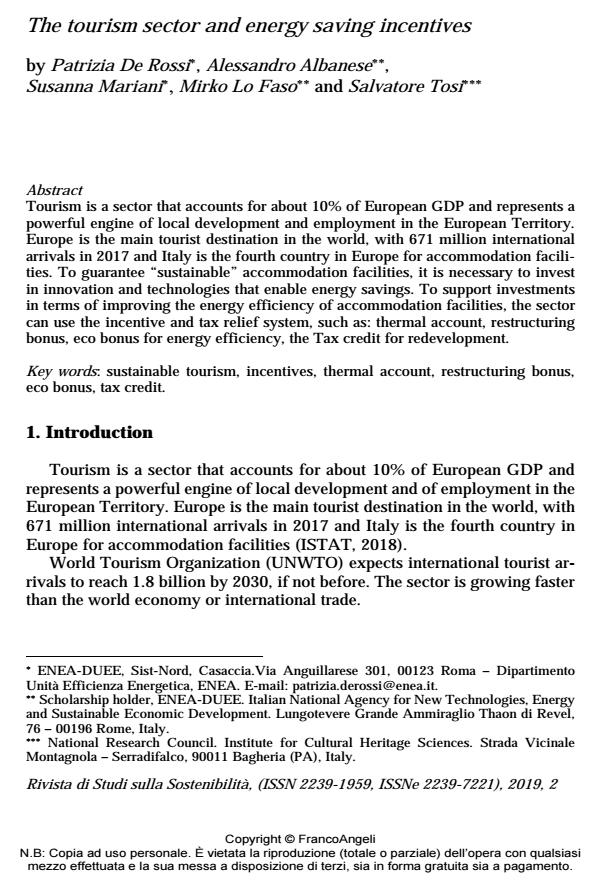The tourism sector and energy saving incentives
Titolo Rivista RIVISTA DI STUDI SULLA SOSTENIBILITA'
Autori/Curatori Patrizia De Rossi, Alessandro Albanese, Susanna Mariani, Mirko Lo Faso, Salvatore Tosi
Anno di pubblicazione 2020 Fascicolo 2019/2 Suppl.
Lingua Inglese Numero pagine 7 P. 267-273 Dimensione file 40 KB
DOI 10.3280/RISS2019-002-S1017
Il DOI è il codice a barre della proprietà intellettuale: per saperne di più
clicca qui
Qui sotto puoi vedere in anteprima la prima pagina di questo articolo.
Se questo articolo ti interessa, lo puoi acquistare (e scaricare in formato pdf) seguendo le facili indicazioni per acquistare il download credit. Acquista Download Credits per scaricare questo Articolo in formato PDF

FrancoAngeli è membro della Publishers International Linking Association, Inc (PILA), associazione indipendente e non profit per facilitare (attraverso i servizi tecnologici implementati da CrossRef.org) l’accesso degli studiosi ai contenuti digitali nelle pubblicazioni professionali e scientifiche.
Tourism is a sector that accounts for about 10% of European GDP and represents a powerful engine of local development and employment in the European Territory. Europe is the main tourist destination in the world, with 671 million international arrivals in 2017 and Italy is the fourth country in Europe for accommodation facilities. To guarantee "sustainable" accommodation facilities, it is necessary to invest in innovation and technologies that enable energy savings. To support investments in terms of improving the energy efficiency of accommodation facilities, the sector can use the incentive and tax relief system, such as: thermal account, restructuring bonus, eco bonus for energy efficiency, the Tax credit for redevelopment.
Parole chiave:Sustainable tourism, incentives, thermal account, restructuring bonus, eco bonus, tax credit.
Patrizia De Rossi, Alessandro Albanese, Susanna Mariani, Mirko Lo Faso, Salvatore Tosi, The tourism sector and energy saving incentives in "RIVISTA DI STUDI SULLA SOSTENIBILITA'" 2 Suppl./2019, pp 267-273, DOI: 10.3280/RISS2019-002-S1017